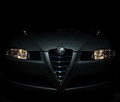
Кто победит на ГП Валенсии 26 июня?
Re: Кто победит на ГП Валенсии 26 июня?
Б.....! Ну когда же победит этот долбанный Алонсо! 

- Alfanero996
- Почетный альфист
- Сообщения: 4176
- Зарегистрирован: Пт фев 24, 2006 2:05 pm
- Откуда: Москва
Re: Кто победит на ГП Валенсии 26 июня?
Карлос Грасия: Фернандо Алонсо должен победить на домашней трассе. ©
-

Typhoon - Olds Cool
- Сообщения: 22959
- Зарегистрирован: Пн апр 21, 2003 8:34 pm
- Откуда: AlfaPlanet
- Авто: 81-714/717
Re: Кто победит на ГП Валенсии 26 июня?
Guderian писал(а):В Монреале команды получили очередное письмо от технических служб FIA по поводу предстоящих ограничений на использование в работе диффузора стабильного потока выхлопных газов, который не зависит от степени нажатия на педаль акселератора.
Начиная с гонки в Сильверстоуне, при отпущенной педали поток выхлопных газов не должен превышать 10% от максимального значения. Нарушение этого правила приравнивается к нарушению параграфа 3.15 технического регламента, запрещающего подвижные элементы аэродинамики, поскольку команды меняют аэродинамические характеристики машины с помощью технических решений.
Техническая рабочая группа, состоящая из представителей команд, соберётся в Лондоне для обсуждения дальнейших действий, но до этого в Red Bull Racing хотели бы получить подробные разъяснения от FIA по поводу предстоящих ограничений. Многие считают, что в результате Red Bull Racing потеряет преимущество в квалификации, но руководитель команды Кристиан Хорнер уверен – все пострадают в равной степени…
Технологию горячего выхлопа используют мотористы Renault, Ferrari и Mercedes, холодного – Cosworth.
уже все утвердили насчет диффузоров. а победить должен Алонсо.
ALFA ROMEO è per la vita
-

ALFA_ROMА - альфавладелец
- Сообщения: 290
- Зарегистрирован: Вс июн 19, 2011 4:08 am
- Откуда: MOSKVA
- Авто: alfa romeo 156
Re: Кто победит на ГП Валенсии 26 июня?
Guderian писал(а):ПТ
11:55 Свободная практика. Прямая трансляция
16:55 Свободная практика. Не показывают.
СБ
12:55 Свободная практика. Прямая трансляция
15:55 Квалификация. Прямая трансляция
ВС
15:45 Гран-при Европы. Прямая трансляция
А Лигу забронировали?
"Безразлично, будешь ли ты наблюдать человеческую жизнь в течение сорока лет или же десяти тысяч лет. Ибо что увидишь ты нового?"
- Old Dirty Bastard
- ортодокс
- Сообщения: 8211
- Зарегистрирован: Вс ноя 25, 2007 10:56 pm
- Откуда: Москва
- Авто: Lancia Delta Nuova
Re: Кто победит на ГП Валенсии 26 июня?
Guderian писал(а):alfa-vora писал(а):уже все утвердили насчет диффузоров. а победить должен Алонсо.
КрасафчеГ, а ты видел дату моего поста?
Победить должен сильнейший!
да видел. я просто заядлый болейшик Феррари и алонсо само собой.
ALFA ROMEO è per la vita
-

ALFA_ROMА - альфавладелец
- Сообщения: 290
- Зарегистрирован: Вс июн 19, 2011 4:08 am
- Откуда: MOSKVA
- Авто: alfa romeo 156
Re: Кто победит на ГП Валенсии 26 июня?
Guderian писал(а):Old Dirty Bastard писал(а):А Лигу забронировали?
Забыл что ли какой у меня траур был?)))
Он до сих пор что ли? Там Лютег бронировать умеет
"Безразлично, будешь ли ты наблюдать человеческую жизнь в течение сорока лет или же десяти тысяч лет. Ибо что увидишь ты нового?"
- Old Dirty Bastard
- ортодокс
- Сообщения: 8211
- Зарегистрирован: Вс ноя 25, 2007 10:56 pm
- Откуда: Москва
- Авто: Lancia Delta Nuova
Re: Кто победит на ГП Валенсии 26 июня?
хороший большой обзор о СФ на AUTOSPORT (англ)
кому не жалко доллар могут почитать по ссылке с картинками
http://plus.autosport.com/premium/featu ... an-vettel/
для остальных только текст
кому не жалко доллар могут почитать по ссылке с картинками
http://plus.autosport.com/premium/featu ... an-vettel/
для остальных только текст
Have you ever noticed that anybody driving slower than you is an idiot, and anyone going faster than you is a maniac?
-

butch - альфавладелец
- Сообщения: 561
- Зарегистрирован: Ср мар 31, 2010 7:53 pm
- Откуда: Москва
- Авто: GT 1,9 JTDm
Re: Кто победит на ГП Валенсии 26 июня?
Для Шэфа, цитирую Брауна

«Никаких сомнений, – подтверждает Браун. – Ведь каждая команда хочет, чтобы гонщик добивался высоких результатов даже на средней машине. Возможно, наша машина еще хуже, чем мы думаем, а гонщики Mercedes GP – самые быстрые в Формуле 1? Мы не знаем.
Ясно одно: пока что мы не выигрываем гонок, но для того, чтобы ситуация изменилась, нам не надо менять пилотов. Все, что нужно – это построить быструю машину».
Сообщение никем не заговорено!
-

flavor - флудный сын
- Сообщения: 14819
- Зарегистрирован: Пн янв 16, 2006 11:23 pm
- Откуда: 7-ой класс общеобразовательной школы
- Авто: Tesla 3 performance
Re: Кто победит на ГП Валенсии 26 июня?
Guderian писал(а):Спасибо! Отличная статья!
если честно ожидал от вас услышать обвинения в недостаточной объективности оценок
ведь там однозначно утверждается что РБ7 лучшая машина (да и РБ6 до кучи)
"Fourteen of Vettel's 15 victories have come in the best car, no question."
рад что оценили по достоинству
статья действительно очень обстоятельная
рекомендую ознакомится всем поклонникам его таланта, и еще больше тем кто считает что "его просто везет самовозка"
Have you ever noticed that anybody driving slower than you is an idiot, and anyone going faster than you is a maniac?
-

butch - альфавладелец
- Сообщения: 561
- Зарегистрирован: Ср мар 31, 2010 7:53 pm
- Откуда: Москва
- Авто: GT 1,9 JTDm
Re: Кто победит на ГП Валенсии 26 июня?
Guderian писал(а):Ха-ха, вы отлично вырвали из контекста. Смысл этой части текста сводилась именно к тому, что машина была "помощником" Себа в достигнутых им успехах, но не решающим фактором.
заканчивайте эти ваши нлпишные закидоны, я не вырывал ничего из контекста
смысл данного абзаца
"Fourteen of Vettel's 15 victories have come in the best car, no question. There's nothing wrong with winning race after race in the best car. After all, plenty of good drivers have struggled to deliver once they get into genuine frontrunning machinery. But it's unlikely victories that get the pulses racing."
по другому истолковать трудно
я никогда не утверждал что машина решающий фактор, я лишь указывал на то что она лучше остальных
вы же это отрицали и говорили что машина такая же как у фер и маков
возобновлять тот спор в мои планы не входит
Have you ever noticed that anybody driving slower than you is an idiot, and anyone going faster than you is a maniac?
-

butch - альфавладелец
- Сообщения: 561
- Зарегистрирован: Ср мар 31, 2010 7:53 pm
- Откуда: Москва
- Авто: GT 1,9 JTDm
Re: Кто победит на ГП Валенсии 26 июня?
Guderian писал(а):Укажите, где конкретно в тексте указано, что РБ7 лучше, чем МП26 и Ф662????
Написано про отличную машину, на которой Себ одержал 14 побед...
Не надо додумывать того, чего нет...
думаю вам стоит спросить у англичан что такое best
если автор хотел сказать "отличный" для этого есть excellent или perfect
Have you ever noticed that anybody driving slower than you is an idiot, and anyone going faster than you is a maniac?
-

butch - альфавладелец
- Сообщения: 561
- Зарегистрирован: Ср мар 31, 2010 7:53 pm
- Откуда: Москва
- Авто: GT 1,9 JTDm
Re: Кто победит на ГП Валенсии 26 июня?
Guderian писал(а):Конкретно укажите, где говорится про Феррари и МЛ... Спасибо.
когда вы употребляете прилагательное в превосходной степени дальнейшая конкретизация не обязательна
best car - лучшая машина
Guderian писал(а):Или вы считаете, что в аутоспорт сидят люди, которые считают РБ6 лучшей машиной 2010?
про весь AUTOSPORT я не знаю конечно но вот Edd Straw считает именно так
получается то что РБ7 лучшая в 2011 вы не оспариваете?
Have you ever noticed that anybody driving slower than you is an idiot, and anyone going faster than you is a maniac?
-

butch - альфавладелец
- Сообщения: 561
- Зарегистрирован: Ср мар 31, 2010 7:53 pm
- Откуда: Москва
- Авто: GT 1,9 JTDm
-

Вит - Клёвый статус
- Сообщения: 3996
- Зарегистрирован: Вт май 06, 2008 1:37 am
- Откуда: Москва
- Авто: AR 159 mt & M6
-

Вит - Клёвый статус
- Сообщения: 3996
- Зарегистрирован: Вт май 06, 2008 1:37 am
- Откуда: Москва
- Авто: AR 159 mt & M6
Кто сейчас на конференции
Сейчас этот форум просматривают: нет зарегистрированных пользователей

